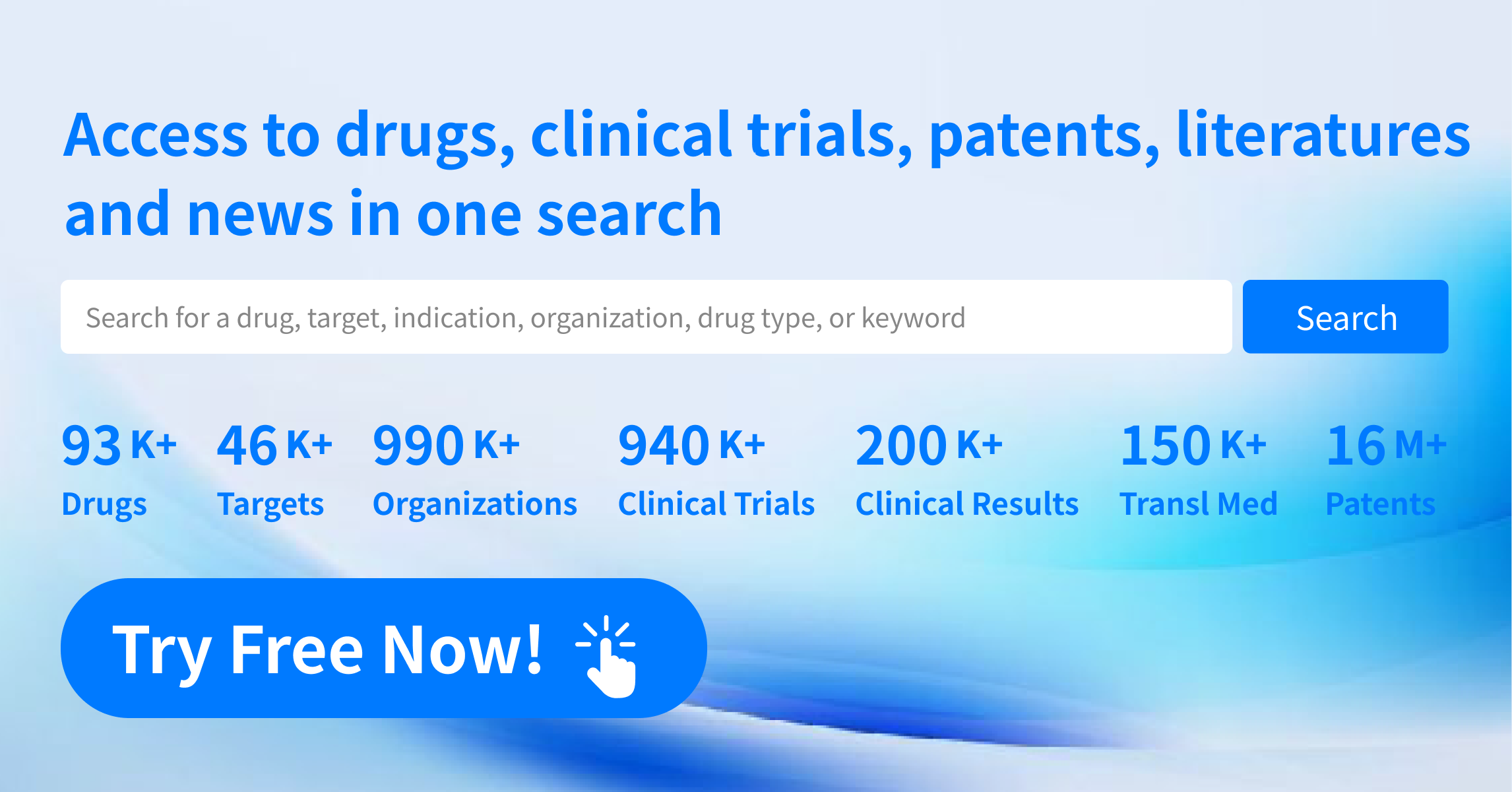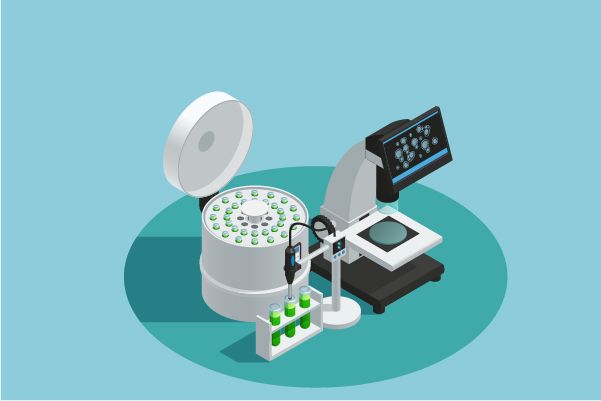Pharma Frontiers: Daily Digest of Global Pharmaceutical News – Aug 6
1.Shionogi's New Antibiotic Submitted for Approval in China to Address Antibiotic Resistance
On August 5, the Center for Drug Evaluation (CDE) of the National Medical Products Administration (NMPA) of China announced on its official website that the new drug application for the imported cefiderocol for injection, submitted by Japan's Shionogi & Co., Ltd., has been accepted. Public records indicate that cefiderocol is a novel antibiotic used for the treatment of severe Gram-negative bacterial infections. Antibiotics are drugs used to prevent and treat bacterial infections. Antibiotic resistance is a growing public health issue. According to the World Health Organization (WHO), antibiotic resistance is occurring worldwide and rising to dangerously high levels. New resistance mechanisms are emerging and spreading globally, threatening the ability to treat common infectious diseases. As the effectiveness of antibiotics declines, more infections become harder to treat and, in some cases, untreatable, creating an urgent need for new therapies that can effectively treat drug-resistant bacterial infections.
Cefiderocol is a novel siderophore cephalosporin with potent broad-spectrum activity against aerobic Gram-negative bacterial species. It has a unique mechanism of action by penetrating the outer cell membrane of Gram-negative pathogens by acting as a siderophore. In addition to passive diffusion through porin channels into the cell, cefiderocol binds to iron and is actively transported into bacterial cells through bacterial iron transport proteins, which bind this essential nutrient for bacteria. These mechanisms allow cefiderocol to reach high concentrations and bind to penicillin-binding proteins, thereby inhibiting cell wall synthesis within bacterial cells.
As an antibiotic used for the treatment of severe Gram-negative bacterial infections, Fetroja (cefiderocol) received approval from the U.S. FDA in 2019 for patients aged 18 years or older to treat complicated urinary tract infections (cUTI), including kidney infections caused by the following susceptible Gram-negative microorganisms: Escherichia coli, Klebsiella pneumoniae, Proteus mirabilis, Pseudomonas aeruginosa, and Enterobacter cloacae complex.
2.Telitacicept (RC18) Global Phase III Clinical Trial for Generalized Myasthenia Gravis Makes Significant Progress
On August 5, RemeGen announced that the first patient in the United States has been enrolled in the global multicenter Phase III clinical trial of its self-developed BLyS/APRIL dual-target fusion protein innovative drug, Telitacicept (RC18), for the treatment of generalized myasthenia gravis (gMG). This milestone marks an important step forward in the global clinical research of Telitacicept, bringing new hope to patients with myasthenia gravis worldwide.
Previously, the myasthenia gravis indication for Telitacicept received Orphan Drug and Fast Track designations from the U.S. Food and Drug Administration (FDA) and Breakthrough Therapy designation from the China National Medical Products Administration (NMPA). The domestic Phase III clinical trial for the myasthenia gravis indication has been nearly completed, with results expected soon.
This global multicenter Phase III clinical trial is a randomized, double-blind, placebo-controlled study designed to evaluate the efficacy and safety of Telitacicept in treating patients with generalized myasthenia gravis (gMG). The trial plans to recruit 180 patients from multiple countries and regions worldwide.
Myasthenia gravis (MG) is a rare, chronic autoimmune disease that impairs neuromuscular junction transmission, affecting ocular movement, swallowing, speech, motor, and respiratory functions to varying degrees. Current main treatments for myasthenia gravis include cholinesterase inhibitors, glucocorticoids, and immunosuppressants. However, there is a lack of effective precision-targeted treatments, resulting in inadequate disease control for some patients due to issues related to drug efficacy, tolerance, or contraindications. This indicates a substantial unmet clinical need.
3.Grand Pharmaceutical Launches Phase III Clinical Trial for Another Radiopharmaceutical in China
On August 3, the Chinese Clinical Trial Registry and Information Disclosure Platform announced that Telix Pharmaceuticals and Grand Pharmaceutical have registered a domestic Phase III clinical trial to evaluate the safety, tolerability, and efficacy of [89Zr]TLX250 for the non-invasive detection of clear cell renal cell carcinoma (ccRCC). Grand Pharmaceutical already has four radiopharmaceutical conjugate (RDC) drugs approved for clinical trials in China, three of which have entered Phase III.
Initially developed by Telix Pharmaceuticals, [89Zr]TLX250 is a radiopharmaceutical targeting carbonic anhydrase IX (CA9), which is overexpressed in ccRCC and many other cancers. Grand Pharmaceutical holds exclusive rights to this product in Mainland China, Hong Kong, Macau, and Taiwan. In July 2020, [89Zr]TLX250 received Breakthrough Therapy designation from the FDA for the diagnosis of ccRCC. Telix Pharmaceuticals submitted a Biologics License Application (BLA) to the FDA for [89Zr]TLX250 in December last year to diagnose clear cell renal cell carcinoma.
ccRCC is the most common and aggressive type of kidney cancer. According to a press release from Telix Pharmaceuticals, if approved, this drug could become the first targeted radiopharmaceutical imaging agent in the U.S. for kidney cancer. Previously, [89Zr]TLX250 successfully met all primary and secondary clinical endpoints in the Phase III clinical trial (ZIRCON) overseas. The trial results showed that for patients with renal masses detected by current clinical diagnostic methods such as computed tomography (CT) or magnetic resonance imaging (MRI) but uncertain for ccRCC, [89Zr]TLX250 achieved sensitivity and specificity of 86% and 87%, respectively, for ccRCC diagnosis via positron emission tomography (PET). These results far exceeded the FDA's preset threshold (both sensitivity and specificity greater than or equal to 70%), with a positive predictive value reaching 93%.
4.Lepu Biopharma's EGFR ADC Receives FDA Breakthrough Therapy Designation
On August 5, Lepu Biopharma announced that its candidate EGFR ADC drug MRG003 has recently received Breakthrough Therapy Designation (BTD) from the U.S. FDA for the treatment of recurrent or metastatic nasopharyngeal carcinoma (R/M NPC). MRG003 is an antibody-drug conjugate (ADC) composed of an EGFR-targeting monoclonal antibody linked to a potent microtubule inhibitor payload, Monomethyl auristatin E, via a valine-citrulline linker. It specifically binds with high affinity to EGFR on the surface of tumor cells, and upon internalization and lysosomal protease cleavage, releases the potent payload, leading to tumor cell death. EGFR is highly expressed in various malignant solid tumors, including colorectal cancer, lung cancer, and head and neck cancers, with 89% of advanced NPC cases showing EGFR expression.
Previously, MRG003 was granted BTD by the China National Medical Products Administration’s Center for Drug Evaluation (CDE), as well as Orphan Drug Designation (ODD) and Fast Track Designation (FTD) by the FDA for the treatment of R/M NPC. Lepu Biopharma has completed patient enrollment for the Phase IIb registration clinical study of MRG003 for nasopharyngeal carcinoma (NPC) and is expected to submit a new drug application in China soon.
BTD aims to expedite the development and review of drugs intended to treat serious conditions when preliminary clinical evidence indicates that the drug may demonstrate substantial improvement over existing therapies. Drugs that receive BTD are eligible for intensive guidance on efficient drug development and an organizational commitment involving senior managers, ensuring that patients have earlier access to new therapies.
5.E-Nitiate Biopharmaceuticals' QY201 Tablets Achieve Primary Endpoint in Phase II Clinical Trial for Moderate to Severe Atopic Dermatitis
On August 2, E-Nitiate Biopharmaceuticals announced that its independently developed Class 1 innovative drug, QY201 tablets, reached the primary endpoint in a Phase II clinical trial for the treatment of moderate to severe atopic dermatitis. The results were statistically significant and clinically meaningful, with good safety and tolerability profiles. Based on the results of this Phase II clinical trial, the company is actively planning the subsequent clinical development strategy for QY201 tablets.
This Phase II clinical trial was designed as a multicenter, randomized, double-blind, placebo-controlled, parallel-group study with continuous administration for 12 weeks. It aimed to evaluate the efficacy, safety, and population pharmacokinetics of QY201 tablets in adult patients with moderate to severe atopic dermatitis and to provide a basis for dose selection in the Phase III clinical trial.
The study results showed that for the primary efficacy endpoint, the proportion of subjects achieving EASI 75 at week 12 in the low, medium, and high-dose QY201 groups was statistically significantly different from the placebo group (P<0.0001). The key secondary efficacy endpoint, the proportion of subjects achieving an IGA score of 0 or 1 and a reduction of ≥2 points from baseline at week 12, was consistent with the above results. Other secondary efficacy endpoints, including the proportion of subjects achieving EASI 50, EASI 90, and EASI 100 at week 12, and the rate of change in EASI scores from baseline at each visit point, showed that all dose groups of QY201 tablets were superior to the placebo group with statistically significant differences.
Regarding pruritus indicators, the weekly average PP-NRS change rate from baseline in week 1, the proportion of subjects with a reduction of ≥3 points from baseline in week 1, and the proportion of subjects with a reduction of ≥4 points from baseline in week 2 (high-dose group in week 1) all showed that the QY201 tablet dose groups were superior to the placebo group with statistically significant differences, and the improvements persisted through week 12.
6.Hengrui Pharmaceuticals' Vunakizumab Receives Approval for 3 New Clinical Trials for the Treatment of Pediatric and Adolescent Psoriasis
On August 5, the latest announcement from the Center for Drug Evaluation (CDE) of the China National Medical Products Administration (NMPA) indicated that Hengrui Pharmaceuticals' Vunakizumab injection received implied clinical trial approval. The proposed indication is for the treatment of moderate to severe plaque psoriasis in children and adolescents aged 6 to under 18 years who are suitable for systemic therapy or phototherapy. Vunakizumab, independently developed by Hengrui Pharmaceuticals, is a recombinant humanized monoclonal antibody targeting human IL-17A. Previously, multiple marketing authorization applications for various indications, including the treatment of moderate to severe plaque psoriasis in adults, have been submitted to the NMPA.
Vunakizumab is designed to target the IL-17A pathway and is intended for the treatment of autoimmune diseases associated with the IL-17 pathway. The product binds to IL-17A, blocking its interaction with IL-17R, which leads to the inhibition of downstream inflammatory signaling. Clinical studies have been conducted on Vunakizumab for various autoimmune diseases, including plaque psoriasis and psoriatic arthritis, to evaluate its efficacy. The study for adult plaque psoriasis has been completed and met its primary and key secondary endpoints, with the marketing authorization application accepted by the NMPA in April 2023. Additionally, in February of this year, the new drug application for treating active ankylosing spondylitis in adults was also accepted by the NMPA.This latest clinical trial approval for Vunakizumab is for the indication of moderate to severe plaque psoriasis in children and adolescents.
7.Genor Biopharma Licenses CD20/CD3 Bispecific Antibody TRC 2004
On August 5, Genor Biopharma announced that it had entered into a licensing agreement and equity agreement with TRC 2004. According to the licensing agreement, Genor Biopharma will grant TRC 2004 an exclusive global license (excluding Mainland China, Hong Kong, Macau, and Taiwan) to develop, use, manufacture, and commercialize GB261. In return, Genor Biopharma will receive the following benefits: 1) a significant equity stake in the licensee; 2) an upfront payment of several million dollars; 3) milestone payments of up to $443 million; and 4) tiered royalties ranging from single-digit to double-digit percentages of net sales.
GB261 is a novel and differentiated CD20/CD3 bispecific T-cell engager (TCE) with ultra-low CD3 binding affinity and intact Fc function (ADCC and CDC). Genor Biopharma has previously successfully completed Phase 1/2 multicenter studies of this bispecific antibody in China and Australia for the treatment of B-cell non-Hodgkin lymphomas (diffuse large B-cell lymphoma and follicular lymphoma). The results demonstrated excellent safety and efficacy. Compared to other similar compounds, GB261 has been shown to significantly reduce cytokine release syndrome (CRS). The characteristics of GB261 make it a highly promising B-cell depletion agent, with potential indications beyond oncology, including various immunological and autoimmune conditions where there are substantial unmet medical needs. The collaboration with TRC 2004 will primarily focus on exploring the potential of GB261 in autoimmune diseases.
Founded in 2007, Genor Biopharma is an innovation-driven biopharmaceutical company with a robust product pipeline covering the top three global tumors (breast cancer, lung cancer, gastrointestinal tumors) as well as hematologic malignancies. TRC 2004 is a company jointly established by the Two River Fund and Third Rock Ventures Fund.
How to obtain the latest research advancements in the field of biopharmaceuticals?
In the Synapse database, you can keep abreast of the latest research and development advances in drugs, targets, indications, organizations, etc., anywhere and anytime, on a daily or weekly basis. Click on the image below to embark on a brand new journey of drug discovery!




